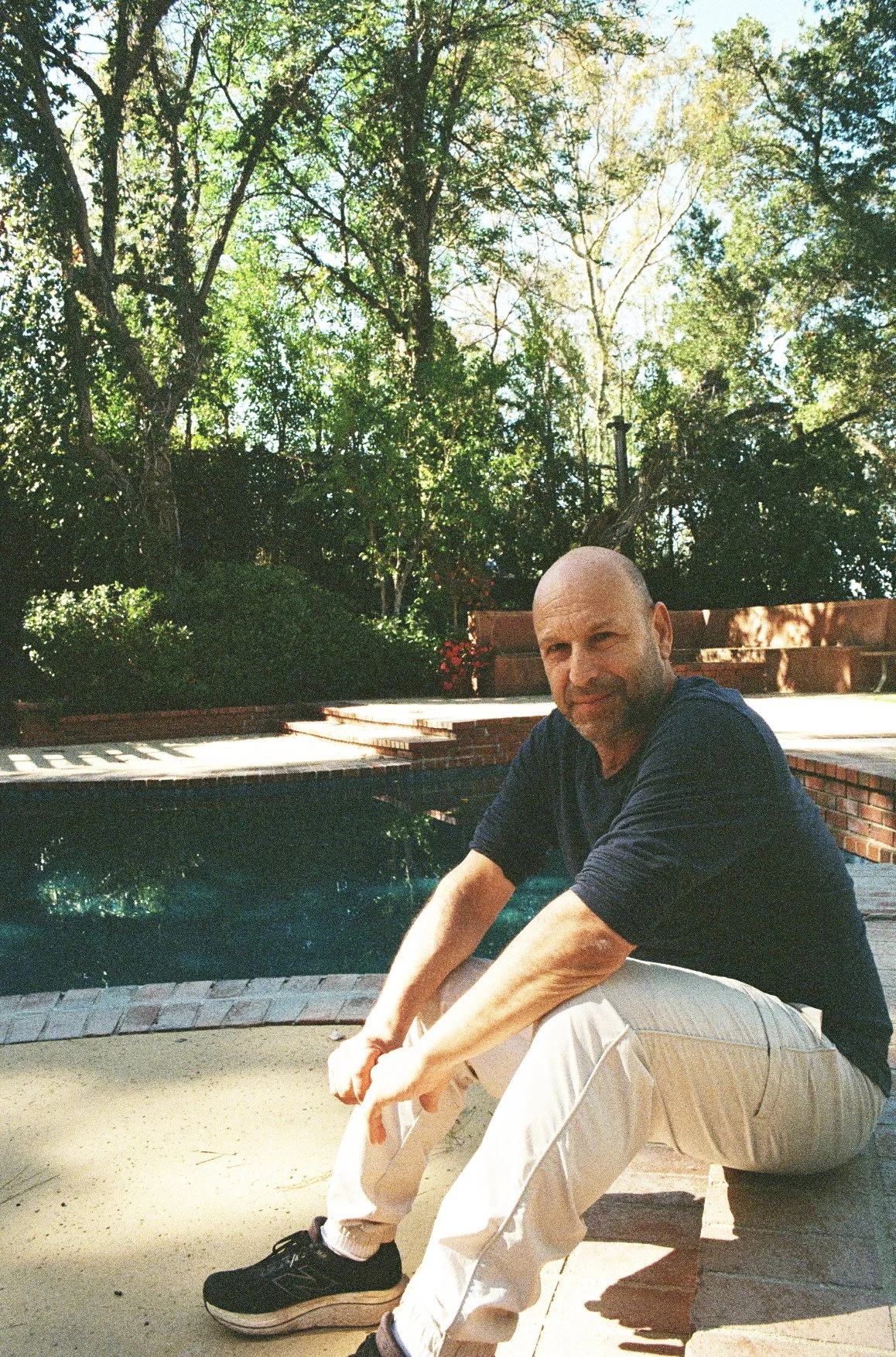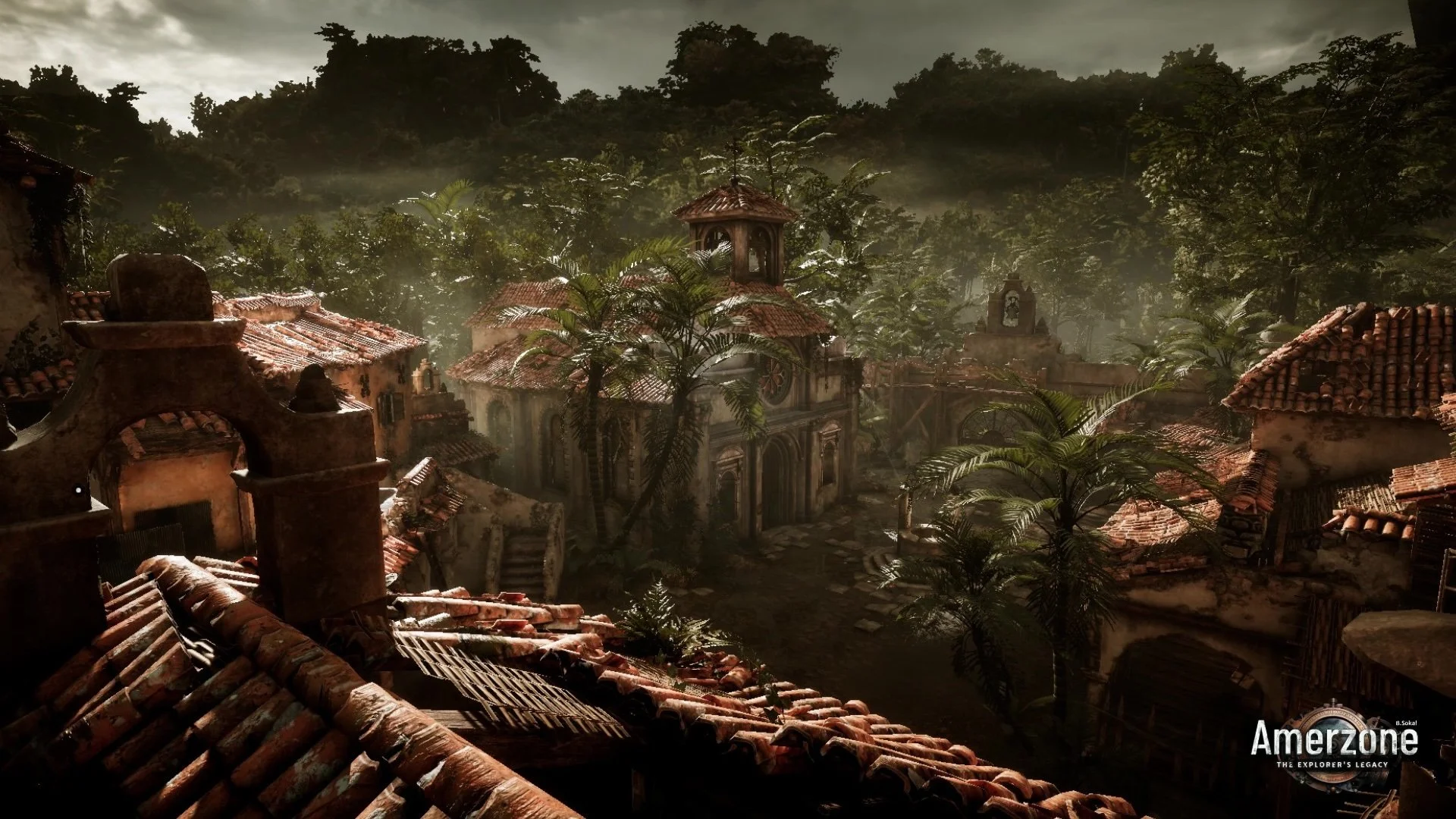The Expanding World of Inon Zur
The Expanding World of Inon Zur
Composer Inon Zur discusses his journey from blockbuster games to Imagine Dragons, and his quest to evoke emotion through music, no matter the medium.
Inon Zur sits in his Los Angeles studio. Sunlight might not stream through the windows here, but the space feels bright and buzzing with creative energy. The shelves behind him are packed with books, manuscripts, and soundtracks that mark his length of time in the industry and his legacy. Instruments rest nearby, hinting at a constant pursuit of sound. He's animated as he speaks, his voice carrying the warmth and excitement that fuels his compositions.
Best known for shaping the emotional landscapes of video games, Fallout, Dragon Age and Rise of the Ronin, to name a few. Zur's music has become inseparable from the worlds they inhabit. But to view his career solely through the lens of gaming would be a disservice. The story of Inon Zur is about connection, curiosity, and a relentless pursuit of the new. "I think one of my duties on this Earth is to connect with people through my music," Zur says, leaning forward. "To represent emotions and have people living my music through their emotions... The connection between me and people, and the music in between, that’s the most important thing."
His path is defined by constant reinvention and bold, unexpected milestones. In February 2025, his music quite literally left the planet, accompanying Imagine Dragons’ “Children of the Sky” on the Lonestar mission to the Moon. The song, arranged by Zur, was transmitted to a lunar data centre as part of the Intuitive Machines IM-2 / Lonestar mission, pioneering a new frontier in commercial ventures on the lunar landscape. “It made it,” Zur says, a genuine smile lighting his face. “It’s quite an honour to know my work is now part of something so historic!”
Photograph // @inonzurofficial Instagram
This collaboration with Imagine Dragons didn’t end with space. In October 2024, Zur took the stage at the Hollywood Bowl, conducting the LA Film Orchestra for Imagine Dragons’ electrifying final show of their Loom World Tour. The concert reimagined the band’s biggest hits, “Radioactive,” “Demons,” “Believer”, with sweeping orchestral arrangements that amplified their epic quality. “It almost seemed like their songs already had this vibe of orchestral epicness to them,” Zur recalls. “All I needed was just filling in the blanks.” The process, he adds, was “really creative and great. They are a very, very positively supporting group and always showed so much enthusiasm and love for what I do.”
“The most important thing for me is how can I create something that will engage people.”
The Hollywood Bowl residency drew over 67,000 fans across four nights, culminating in a fireworks finale that fused the band’s explosive sound with Zur’s intricate symphonic vision. The concert’s impact didn’t end there: Imagine Dragons: Live from the Hollywood Bowl (with the LA Film Orchestra), featuring Zur’s arrangements and conducting, was brought to cinemas worldwide in March 2025. Fans across the globe experienced the energy and emotion of that night, the music elevated by Zur’s signature touch, in premium formats from ScreenX to 4DX.
Beyond those well-known collaborations, Zur's work extends into other musical territories. He scored Star Trek: Klingon Academy, one of the first games to feature a live orchestra. He's contributed to numerous film and television projects, lending his signature sound to everything from sweeping orchestral scores to more intimate, character-driven pieces. It's this versatility, this ability to adapt and find the emotional core of any project, that makes him so sought after. His range encompasses everything from soaring, epic themes to delicate, understated melodies.
What's striking is Zur's openness, his eagerness to credit others, to discuss the joy of learning from fellow musicians and composers. He mentions Cristobal Tapia de Veer's score for The White Lotus. "Listening to that score, I could think about, wow, they're using a very interesting set of instruments in a very interesting way. I definitely could learn from this."
Recently, he’s shared his latest project, Amerzone, a game he scored alongside his son, Ori Zur. "When Microids contacted me, I said to myself that it would be the perfect chance to work with Ori, and for him to show his talent," Zur explains. He composed the main and journey themes, while Ori crafted the rest of the soundtrack, with Inon offering only technical advice. "Music is a highly personal thing," he says. "So I chose to stand back and let Ori express himself".
Zur's approach to composing for games varies, yet his close collaboration with Bethesda Softworks stands out. "Usually, they notoriously start the music as the first thing they’re doing on their game, before there’s even a game," he explains. "Because they believe, especially Todd Howard believes, that music is what drives the emotional aspect in the game, so he really wants to set the tone... So when I'm working on a Bethesda game, I barely see anything." That trust extends to his iconic Fallout theme, recently featured in the Amazon Prime TV adaptation, introducing his work to a new audience. The way in which his work for Fallout has translated into other mediums is reflective of Zur's ability to connect with an audience regardless of platform.
The future for him isn't about chasing fame, but pursuing feeling. "It doesn't really matter if I will work next with the most famous singer, or if I will just write music for a very esoteric and indie movie or game," he says. "The most important thing for me is how can I create something that will engage people, that will sort of get people's emotional juices going?" He hints at upcoming projects—a major concert, something he can't yet reveal, but we’re all eagerly anticipating that announcement…
Inon’s career is a testament to the power of versatility. He's moved seamlessly between genres, mastering each with a singular vision. "Every day is discovery," he repeats, almost to himself. Zur's legacy lies not only in the soundtracks that have become a part of our culture, but in his relentless search for new ways to connect. He's a composer who listens, who finds inspiration in the unexpected, and who, even after decades, still asks: what's next?



